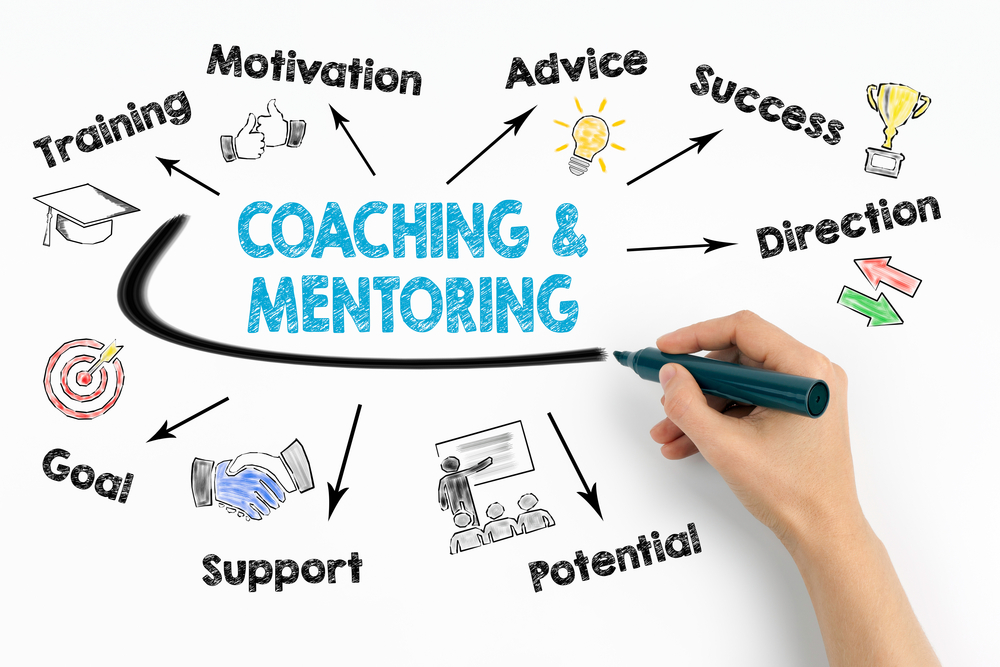At the beginning of a career, many questions arise: How do I establish contacts with decision-makers in the industry or with a specific company? What does the ideal application look like? What should I be prepared for in the interview? And which faux pas should be avoided during the first few days at work? A good mentor has already gone through the various steps, gained a foothold professionally, and may even have advanced. So he knows from his own experience how young professionals feel and what is important at the beginning of their career.
What is a mentor anyway?
A mentor is a more experienced person who supports a less experienced and mostly younger person ( “mentee”) in their development over a longer period of time. Mentors are often used when it comes to designing transitions such as starting a career. Mentoring usually takes place as a one-to-one relationship, but sometimes also in groups. Usually, the mentor and mentee can decide for themselves how often they have contact and whether the exchange takes place in person, by telephone, or by email. Sometimes young professionals informally find a mentor, but sometimes universities, companies, or industry associations also bring them into contact with potential mentors through specially designed programs.

What help can mentors provide at the beginning of the career?
Mentors not only bring special experience and insider knowledge with them but ideally they are also neutral and well-connected contact persons. This means that on the one hand, mentees can entrust them with their problems without fear of negative consequences. On the other hand, in some cases, it can also make sense to present yourself positively to the mentor, as he can act as a stirrup holder due to his good position.
According to his personal interests, his position, and his competence, and depending on the needs of the mentee, a mentor can for example:
- Share experiences and provide information: What questions do HR professionals like to ask in an interview? Who is responsible for what in the company? Which colleague shouldn’t you mess with? Which contact person can help with the search for an internship?
- Listening and giving feedback: How promising do the mentee’s career plans sound? How can he use his previous experience for his career? How can you optimize your application documents? How can he deal with insecurities, problems, conflicts, or misunderstandings in his job?
- Accompany the mentee during career steps: Which departments in the company are interesting for young professionals? Who can he or the mentor himself contact so that access is facilitated? How can development talks with superiors be prepared and followed up?
If you want to benefit from the support of a mentor, here are five tips to heed:
Search actively:
Anyone who would like support from a mentor should actively search for it: First, mentally go through your circle of acquaintances: Is there anyone who works in your dream industry or your dream company? How can you contact him? As an alternative or beside, you can search for suitable people on XING, contact the alumni network of your university or inquire with foundations, industry, and professional associations. You can also search specifically for companies that offer mentoring programs.
Design conversations
If you have already found or been referred to a mentor, you should consider before each interview what you would like to talk to him about and what questions are on your mind. Especially the first conversation should be well prepared: What do you expect from your counterpart? How often do you want to be in contact with him? Which communication channels would you like to use? How should confidential information be handled? Some institutions and companies provide their mentoring couples with guides that you can use to prepare.

Keep in touch
The mentees should also be the ones who actively keep in contact with their mentor and arrange a meeting if necessary. Because you get the most benefit from mentoring.
Bring openness
Try to open yourself to the mentor’s views and advice. Use mentoring as an opportunity to broaden your horizons and to try new things.
Respect boundaries
Report about your everyday life in the application or career entry phase, about your wishes and plans. Ask your counterpart about their résumé, their day-to-day work, and their position in the company. But rely on the professionalism and place private topics just very carefully. To avoid frustrating the mentor and wasting your own time, seek constructive advice in the conversations instead of complaining about difficulties.

